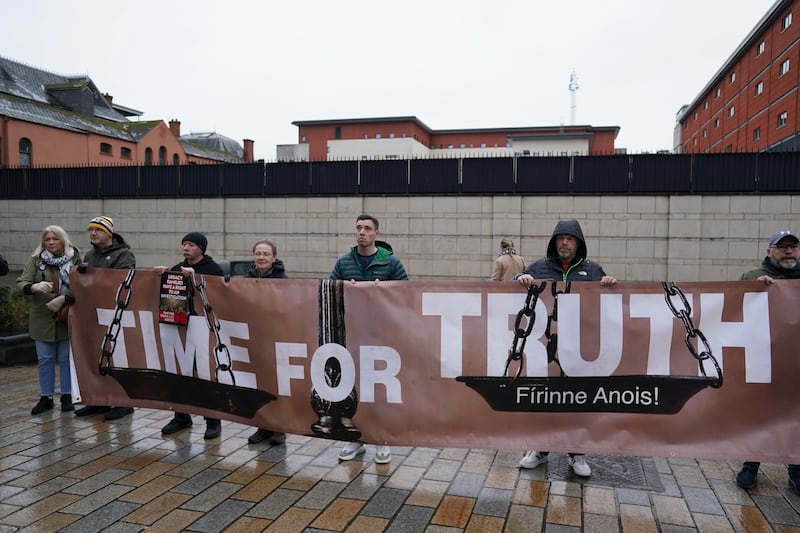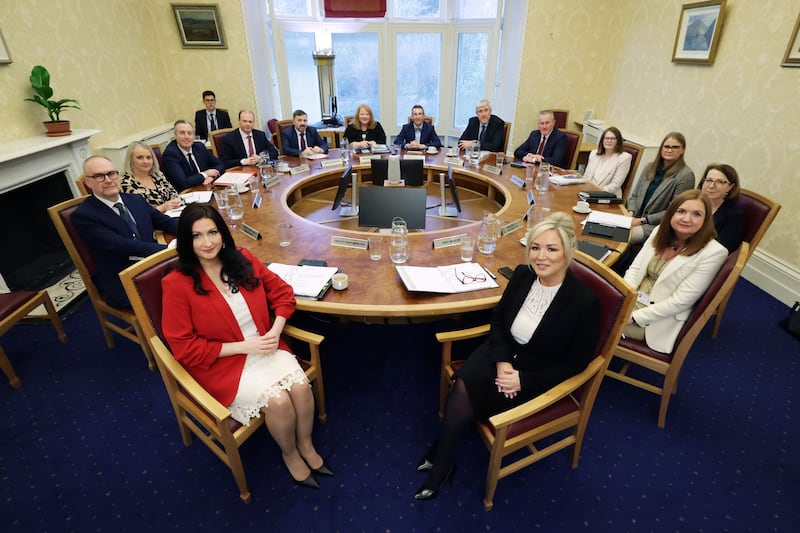Chief constable Jon Boutcher is not backing down on his criticism of secretary of state Chris Heaton-Harris and the British government’s approach to Troubles legacy cases.
Giving evidence to the NI Affairs Committee at Westminster yesterday, Mr Boutcher told MPs he was “at odds” with Mr Heaton-Harris and the government’s absolutist approach to the disclosure of sensitive information.
It should not easily be forgotten that the PSNI’s own track record is, to put it kindly, one of dragging its feet.
- Jon Boutcher ‘at odds’ with Chris Heaton-Harris over legacy disclosureOpens in new window
- Fergal McCusker’s family deserve the truth, not a row between Chris Heaton-Harris and Jon Boutcher - The Irish News viewOpens in new window
- Legacy Act has caused ‘huge problems’ in justice system – Naomi LongOpens in new window
There have, however, been glimmers that under Mr Boutcher’s tenure - he has been six months in the job - a more sensible approach to disclosure is being taken by the police.
This has already led to friction with Mr Heaton-Harris. As we reported earlier this month, the secretary of state wrote to Mr Boutcher to say he was concerned about his “public statement” on a Troubles inquest.
Mr Boutcher wrote back, reminding the secretary of state that the chief constable was “independent of the executive” and not under the control of ministers.
It seems impossible to characterise Mr Heaton-Harris’s interventions on behalf of the British government as in any way helpful for the families of Troubles victims seeking truth.
Barra McGrory KC, for example, described the secretary of state’s involvement in the Fergal McCusker inquest as an “unprecedented political intervention on behalf of the government to seek to circumvent the judicial process”.
The government’s twin impulses of resorting to public interest immunity applications and the ‘neither confirm nor deny’ mantra have been enormously problematic. As Jon Boutcher says, this approach has fed a “narrative of collusion and conspiracy”
The government’s twin impulses of resorting to public interest immunity applications and the ‘neither confirm nor deny’ mantra have been enormously problematic.
As Mr Boutcher correctly identifies, this approach has fed a “narrative of collusion and conspiracy”.
He contends this does the security forces a disservice because they often “did a great job” but that the government’s “iron curtain approach” does not allow relevant information to be released.
Mr Boutcher insists he wants to challenge this obstructive way of doing things, because it’s “like an anchor that holds us back”. It is, he says, “poppycock” - though others would use stronger language - to say that a crime can’t be investigated because an agent was involved.
The chief constable says he wants the government to review its rigid application of ‘neither confirm nor deny’ in relation to Troubles cases, because “nobody who commits murders should be protected by the policy”.
It is regrettable that a chief constable is only now talking so robustly about Troubles cases. It has come too late for too many families who are still seeking answers, with the Tories’ arbitrary May 1 cut-off for Troubles inquests just a week away.
Time will tell how candid the PSNI will be with the contentious Independent Commission for Reconciliation and Information Recovery in this new landscape.








